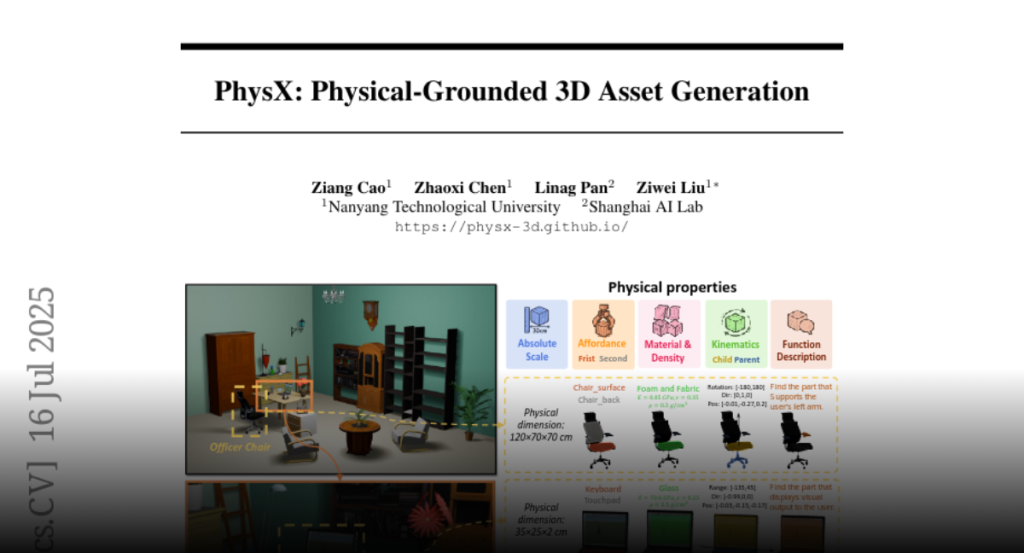PhysX addresses the lack of physical properties in 3D generative models by introducing PhysXNet, a physics-annotated dataset, and PhysXGen, a framework that integrates physical knowledge into 3D asset generation.
3D modeling is moving from virtual to physical. Existing 3D generation
primarily emphasizes geometries and textures while neglecting physical-grounded
modeling. Consequently, despite the rapid development of 3D generative models,
the synthesized 3D assets often overlook rich and important physical
properties, hampering their real-world application in physical domains like
simulation and embodied AI. As an initial attempt to address this challenge, we
propose PhysX, an end-to-end paradigm for physical-grounded 3D asset
generation. 1) To bridge the critical gap in physics-annotated 3D datasets, we
present PhysXNet – the first physics-grounded 3D dataset systematically
annotated across five foundational dimensions: absolute scale, material,
affordance, kinematics, and function description. In particular, we devise a
scalable human-in-the-loop annotation pipeline based on vision-language models,
which enables efficient creation of physics-first assets from raw 3D assets.2)
Furthermore, we propose PhysXGen, a feed-forward framework for
physics-grounded image-to-3D asset generation, injecting physical knowledge
into the pre-trained 3D structural space. Specifically, PhysXGen employs a
dual-branch architecture to explicitly model the latent correlations between 3D
structures and physical properties, thereby producing 3D assets with plausible
physical predictions while preserving the native geometry quality. Extensive
experiments validate the superior performance and promising generalization
capability of our framework. All the code, data, and models will be released to
facilitate future research in generative physical AI.

